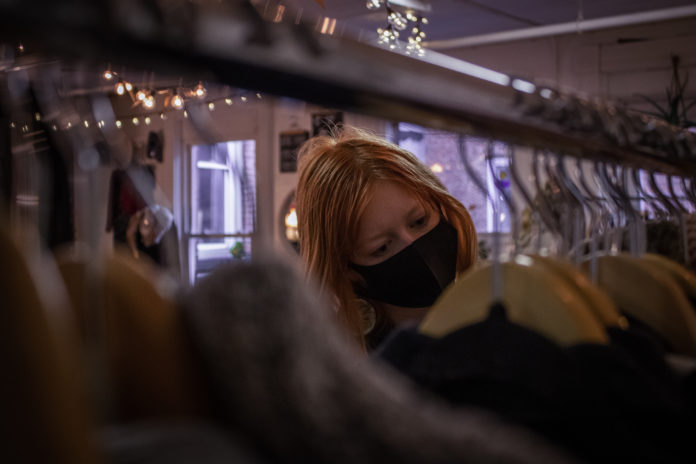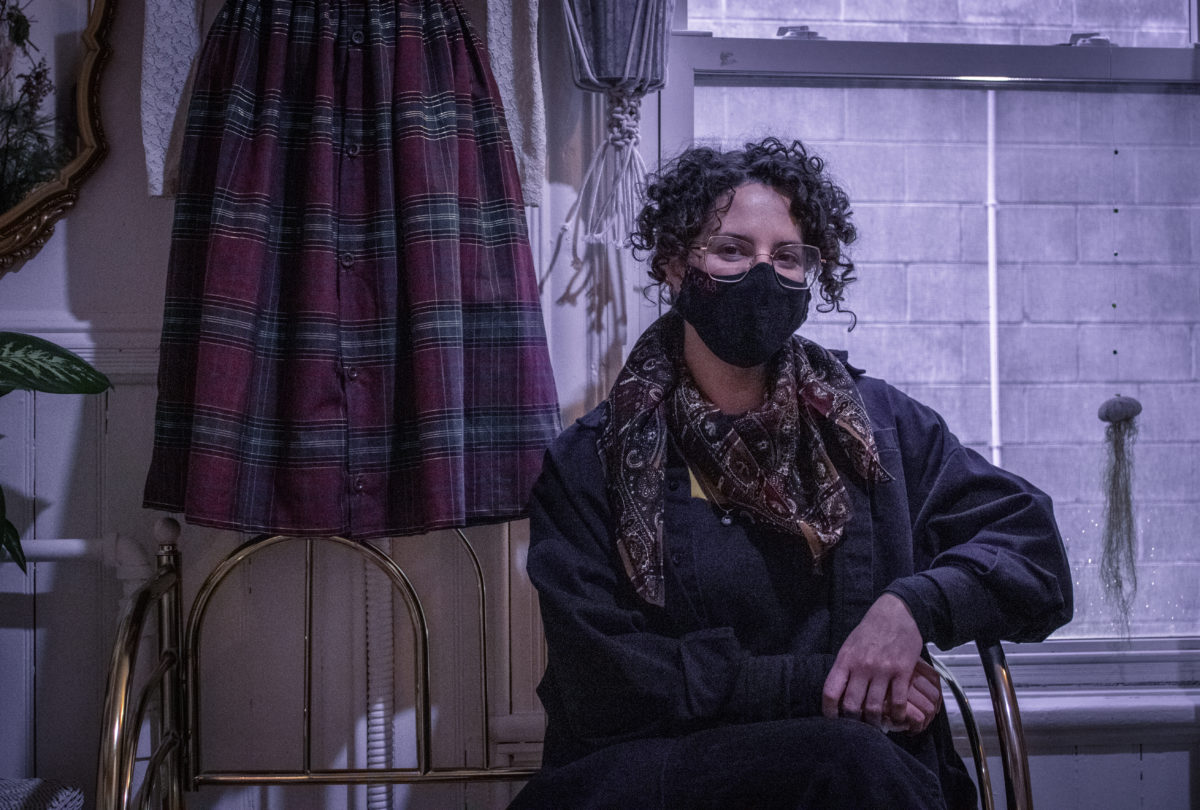

Is thrift shopping a fun, cost-effective way to stay stylish and avoid supporting fast fashion, or is it causing gentrification and price increases in stores that low-income and homeless populations rely on for their clothing?
The topic has been ravaged with debate since thrifting became a popular pastime, where before it was done by people who saw it as a necessity, not a hobby.
Skyler Baxter, a third-year St. Thomas University student and avid thrifter, said the controversy is overblown.
“In what rationale would it be logical for someone to think that buying something used opposed to new is unethical?” said Baxter.
As a student, she said she also runs a Poshmark, which is a website used to sell clothing. Baxter thrifts and curates clothing then resells the thrifted items on her online account ‘Sky’s Closet.’
Though Baxter said she is aware of the idea that thrift shopping as a trend might increase prices, she said it’s unlikely that it will become an actual issue.
“I think it’s completely paranoia because, in a hypothetical world where everybody purchased thrift clothing, it’s more likely to shut down fast fashion than it is to tighten the prices of thrift clothes,” said Baxter.
Baxter said she tries to avoid thrift companies like Value Village, which are known for selling used items at a higher price than most.
“They’re bringing their money to charity, but we don’t know what charity is going to specifically, and they’re using our purchases to claim tax breaks as a multinational corporation,” said Baxter.

Instead, she likes to support locally-based thrift stores like Hospice Boutique. The boutique is a thrift store whose proceeds go to the end-of-life care home Hospice House, a residential hospice that houses patients with a life expectancy of six months or less.
Rather than worrying about thrifting, Baxter said the concern should be focused on the growing popularity of companies like Shein and Romwe, Chinese clothing companies who advertise their cheap prices online.
The advertising increased for Black Friday and Cyber Monday, with these sites receiving traffic in droves from people looking for Christmas deals and those who are nervous to shop in person because of COVID-19. Baxter is suspicious of the ethicality of their items, and whether or not they properly pay their employees because of a lack of transparency, especially considering the very low prices. There’s also the sourcing of the materials to consider, said Baxter.
“There’s still that fear about where the fabrics come from. Who is harvesting that cotton, you know what I mean?” said Baxter.
Despite the criticism of these sites, they remain popular due to their low prices, convenience and trendy clothing that may be harder to find in person, according to Euronews.
Giang Nguyen, a business student at the University of New Brunswick, arrived in Fredericton from Vietnam last year and has been a fan of thrifting ever since.
“I don’t want to say it, but I feel like I’ve been kind of a thrift addict,” she said.
Nguyen said her home city, Hanoi, doesn’t have any thrift stores and she’s only received the thrift experience through watching YouTubers. She wasn’t aware of the controversy surrounding thrifting, but after thinking, she said the concerns about thrifting seem unreasonable.
“As someone who thrifts, I don’t really agree that it is taking away from people in poverty,” said Nguyen.


She said it’s unlikely that enough wealthy people with disposable income would thrift for it to become an issue.
Nguyen said some of her friends don’t like wearing used clothing, with some of them saying the second-hand clothes are unsanitary.
These specifics made her skeptical because wealthy shoppers would be more inclined to buy new clothes instead of thrifting, Nguyen said.
Nguyen finds thrifting is an exciting way to not support fast fashion, especially when sustainable fashion is out of her price range.
“I also want to support sustainable clothing and brands, but I can’t just whip out like 300 bucks for a pair of Doc Martens like every month,” said Nguyen.
Delaney Bonvie runs an Instagram page called Bad Bitch Thrift Club. She uses the page to discuss the damages of fast fashion and resells clothes in the Fredericton area. Though not everyone understands her prices. Bonvie’s store works like an auction, with a set base price and a set maximum price to buy the item instantly. This leaves some wiggle room for pricing, but she still hopes to make a profit as it is a business.
“The items are specially curated, so you have to factor in the time and the care that goes into sourcing these items. I do alter some of the garments, I upcycle them and change them to fit my style,” said Bonvie. “Take into account the materials that go into that alteration and also shipping materials like bags, stamps and shipping labels.”
Bonvie said as a reseller, it’s natural to price goods higher than they would be found in thrift shops.
Many students and resellers alike are dedicated to thrifting specifically because they believe in saving the environment so they’re well educated on the topic. It’s a way to bring environmentally conscious people together and, in Bonvie’s words, to look good doing it.


Laurel Green is the owner of Bellwether, a vintage clothing and apparel store in Fredericton. The store operates on a consignment service where customers bring in their own used clothes to be resold. The resulting profit from selling the items is then split between the donator and the store itself.
Green said the consignment aspect of the shop helps create a stronger community, where knowledge of the shop can be spread by word of mouth through donators. While she is the owner of the shop, she said the community helps shape what Bellwether is.
“There’s so much clothing that, even with the tags on them, still end up in a landfill on an annual basis. It’s sickening,” said Green.
